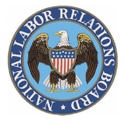
Collective bargaining agreements frequently contain “dues check off” provisions, which require employers to deduct union dues from their employees’ wages, and to then forward those dues to the union. For the past 50 years, these check off provisions were among certain reciprocal contractual entitlements flowing to the union and employer that automatically terminated when a collective bargaining agreement expired. As such, they were not among other contractual provisions that pertained to the wages, benefits and other terms and conditions of employment for the bargaining unit employees that continued indefinitely after the collective bargaining agreement expired until impasse or a replacement agreement was reached. This allowed employers to stop collecting dues for unions once their contract ended.
Read more from Lexology.
Related News
- RME members: Make your voices heard ahead of national negotiations!
- Tom Wiant moves from International rep. to assistant to the general president
- SMART TD, TTD Set For Victory Over Carriers On Train Length Data Collection
- BE4ALL Canadian Labour Spotlight: Helen Jury Armstrong
- SMART-TD, RME members secure paid sick leave for rail workers at Union Pacific
- SMART-TD Leaders take to the UAW picket line at a Jeep plant in Toledo, OH.
- SMART statement on Inflation Reduction Act anniversary
- Minnesota SMART members win legislative victories across sheet metal and transportation
- SMART remembers and honors all who have made the ultimate sacrifice
- SMART Women’s Committee welcomes new members